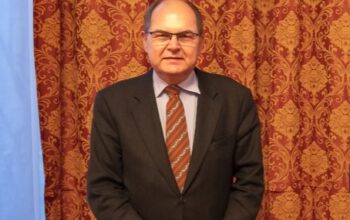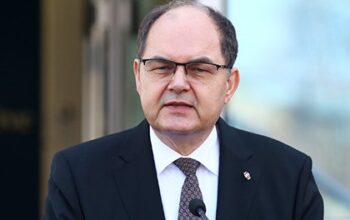This UN Security Council’s debate on Bosnia and Herzegovina (BiH) earlier this month brought new indications that the era of the High Representative’s dominion over BiH is nearing an end. The EU and its largest member states called, at a minimum, for a shifting of functions away from the OHR and toward the EU Special Representative.
In its statement before the Security Council, Germany suggested the OHR is obsolete and called for a transfer of OHR responsibilities to the EU. Germany pointedly rejected the need for continued foreign superintendence of BiH, observing, “[C]lose and far-reaching monitoring and supervision by the international community was undoubtedly a necessity in the past. It has not succeeded, however, in creating incentives for politicians in Bosnia and Herzegovina to seek compromise solutions rather than advancing their nationalist agendas.”
After welcoming the “contribution” of the High Representative and OHR during the “past 17 years,” Germany stressed:
It is now time, however, to focus on concepts and instruments that have shown to initiate positive developments, rather than on obsolete approaches. The EU perspective is finally occupying center stage in Bosnia and Herzegovina; we can now afford to relieve the Office of the High Representative of tasks that are fulfilled by the EU and its representatives on the ground.
Germany wasn’t the only prominent EU member calling for power to be stripped from the OHR. France said that time has come for “action” to cut the OHR’s size. In its statement, France said:
Taking into account that the security situation has been calm for several years now and that there has been progress on political dialogue and reforms, including moving towards the five objectives and two conditions established by the Peace Implementation Council (PIC) in 2008, there is justification for enhanced commitment by the European Union, and it calls for the continued reconfiguration of the international presence in Bosnia and Herzegovina.
While expressing support for the High Representative’s efforts, France said, “His mission and the resources available to him obviously have to develop in accordance with the situation.” France emphasized: “Five months after the European Union Council of Foreign Ministers adopted clear conclusions on reducing the size of Office of the High Representative in Bosnia and Herzegovina, on 5 December 2011, it is time to move on to action. We should recalibrate the work of the Office with a view to creating complementarity vis-à-vis the work of the European Union.”
Serbia, the newest candidate for EU membership, said at the Security Council debate, “We believe that steps should be taken towards closing the Office of the High Representative and terminating the so-called Bonn powers, because the legitimately elected representatives of all peoples and entities have the ability and capacity to take over the responsibility for independently managing the affairs of the State.”
The EU itself, in a statement to which Germany, France, Portugal, and Croatia associated themselves, said the EU “looks forward to continuing discussion with the international community on the reconfiguration of the international presence, including its downsizing and possible relocation of the OHR, in the appropriate forum. In this regard, it notes the ongoing discussions on overlapping tasks between the OHR and the EU.”
Assistant U.S. Secretary of State Philip Gordon, recently said BiH’s “future lies in its integration into Europe.” In order to help BiH achieve this goal, the United States and other countries should join the emerging European consensus for transition of the international presence in BiH.


